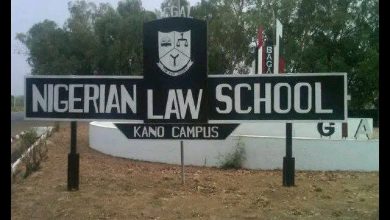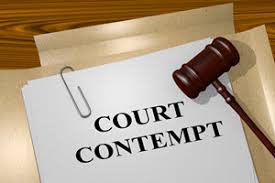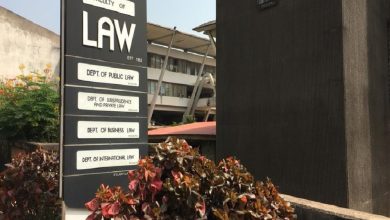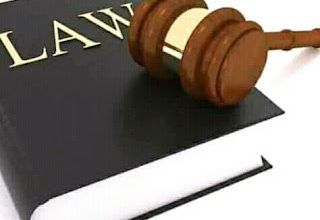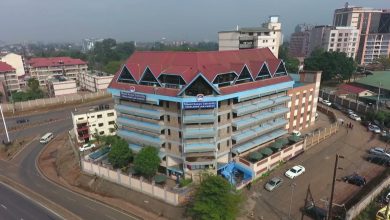What is rule of law in nigeria
The Rule of law is a reality in Nigeria.

I stand before you today humbly by the opportunity you have given me, to honour your invitation and mindful of the task before me. Mr Chairman, Impartial panel of judges, the moderator, Accurate time keeper, my Co-debators, ladies and gentlemen.
I welcome you to the debate session of International law students Association University of Maiduguri.
I am Abdullahi Aliyu Zakari a lead speaker from Barr. Babunu’s Chambers.
I stand to support a proposition that says the Rule Of Law Is A reality In Nigeria.
Before I begin my argument let me look at the origin of rule of law. The Rule of law was first originated by Sir Edward Coke, the Chief Justice of England. The British people strongly believe in divine theory of state. This theory propagates that a king can not do wrong, king is above the law. Sir Edward Coke was first person to criticize this theory. He strongly believe that king must be under the Rule of law.
The Rule of law was later developped by A.V Dicey in his book “Introduction To Law of Constitution.”
According to Dicey rule of law is a mechanism, process, Instruction, practice or norm that support the equality of all citizens before the law.
According to Dicey there are 3 conceptions or principle of rule of law. Which are:
1- Equality before the law.
2- Absolute supremacy of law
3- Separation of power
I’m going to discuss these Principles of Rule of law and relate them to current situation of Nigeria.
Equality before the law:
Dicey lay his emphasis the Impartiality of law. This means that there shall be no discrimination between rich and poor, official and non official. No one can be upgraded and no one can be degraded. Law gives equal Justice to all. No matter how high you are or low you are, the law gives equal Justice to all.
When I say law gives equal Justice to all. Some might think that it’s only the poor or lower class face wrath of law in Nigeria. But the truth is law gives equal Justice to all.
In Nigeria we have seen a situation where first class citizens were sentenced to prison. A classical example of former senator of Plateau state and former Governor of Taraba state among others were sentenced to 14years imprisonment for the offence of fraud. And also sir Onnoge Waiter Samuel was removed from the seat of Chief Justice of Nigeria over misconduct.
You can also see the case of Abba kyari is still pending in the court.
These are all first class citizens, no one will ever think they will face the wrath of law. This is what Dicey called the equality before the law.
The opposing side might say: if everyone is equal before the law why “ the immunity clause in our constitution what is it doing there?
First of all for the interest of laymen here I have to let them understand what “immunity clause is all about.
immunity clause is a protection of President, vice president, governors and their deputies in the Constitution. If these people are in office you cannot take any legal action against them.
According to section 308(a) which says:
“No civil or criminal proceedings shall be instituted or continued against a person to whom this section applies during his period of office;
(b) a person to whom this section applies shall not be arrested or imprisoned during that period either in pursuance of the process of any court or otherwise; and
(c) no process of any court requiring or compelling the appearance of a person to whom this section applies, shall be applied for or issued:
Provided that in ascertaining whether any period of limitation has expired for the purposes of any proceedings against a person to whom this section applies, no account shall be taken of his period of office.
(2) The provisions of subsection (1) of this section shall not apply to civil proceedings against a person to whom this section applies in his official capacity or to civil or criminal proceedings in which such a person is only a nominal party.
(3) This section applies to a person holding the office of President or Vice-President,
Governor or Deputy Governor; and the reference in this section to “period of office” is a reference to the period during which the person holding such office is required to perform the functions of the office.
You may think this is bad provision and there is not any equality in the Constitution. Let me explain this to your understanding. Imagine a system allowing anybody to take legal action against these people. Believe me they will be numerous of cases against these people in the Court. Infact they won’t be able to perform their Constitutional duties. Because they will be at court everyday day and Night. This is the wisdom behind this provision. You can take any action against them after they leave their respective offices.
So, this shouldn’t seems like rule of law is not reallity but it’s a reality in Nigeria base on the principles of rule of law.
Absolute supremacy of law:
This means that power must be exercise in conformity with the basic and ordinary law of the land. Whatever status or social placement of a citizens, he must succumb himself to the rule of law.
According to section.1 of the 1999 constitution of Federal Republic of Nigeria. Which says:
“This Constitution is supreme and its provisions shall have binding force on the authorities and persons throughout the Federal Republic of Nigeria.”
Why will you believe that rule of law is not reality in Nigeria?
The rule of law entails the absolute supremacy of law. And our Constitution entails this supremacy. The fact that Nigeria has a law that is above all authorities and persons, that means the rule of law is reality in Nigeria.
Separation of power:
This means that power must be shared amongst the 3 arms of government. Power must not be in one person like its practice in North Korea and other Nations of the world.
Everyone will agree with me that in Nigeria power is shared among 3 Arms of government. Which they are:
1- Executives (president and Governor’s)
2- Judiciary (Chief Justice of Nigeria and other judges)
3- Legislatures (Senators and Members house of Representatives).
Power is shared among these people and no one is allowed to interfere with other’s duties. They can only checkmate each other’s activities.
To this end I will like to quote Mr Kayode of the blessed memory who said:
“The rule of law knows no fear, it is never cowed down, it can only be silenced but once the one that can silence it does not silence it, it must be accepted in full confidence to be able justify its existence.”
See the case of Garba Vs A.G.F (1988)
Thanks!



